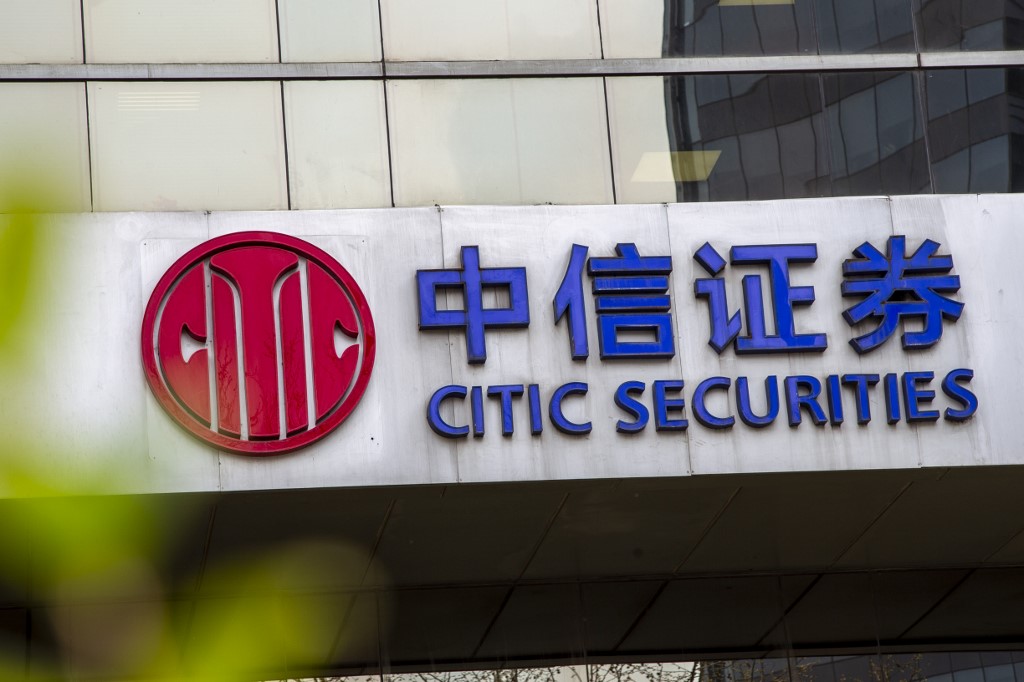(ATF) China’s security brokerage firms recorded revenues of over 116 billion yuan ($18 billion) from commission and handling fees in 2020, up 47% from the previous year, as a slew of reforms aimed at deregulating the sector and a surge in share prices sent daily trading values close to an all-time high.
Brokerage commission and handling fees accounted for about a quarter of the industry’s total revenues, according to data released by the Securities Association of China (SAC) on Tuesday.
Total revenues of the industry grew 24.4% to 448.5 billion yuan ($69.5 billion) while total net profits were up 28% to 157.5 billion yuan ($24.4 billion). Out of 133 brokerage firms, 127 of them made a profit, the SAC said.
Besides brokerage commission and handling fees, other revenues included those generated from investment banking services, commissions for selling financial products, investment advisory services and asset management services.
The overall performance of the securities industry was improving, the association said, as the industry “actively serves the real economy and citizens’ wealth management needs” amid challenges brought by the pandemic.
Spurred by enterprises’ financing demand amid the pandemic, investment banking services such as underwriting initial public offerings (IPOs) also achieved a rapid growth of 39.3%, and contributed 67.2 billion yuan ($10.4 billion) to total revenues.
The securities industry supported the real economy’s financing needs by raising 526 billion yuan ($81.5 billion) through IPOs and 731 billion yuan ($113.3 billion) through secondary offerings, up 74.7% and 41.7% respectively, the SAC said.
CITIC Securities ranked first
Shanghai-listed CITIC Securities ranked in first place by revenue among 44 brokerage firms that have released their 2020 performance accounts. It reported a net profit of 14.9 billion yuan ($2.3 billion) on revenue of 54.4 billion yuan ($8.4 billion), up 21.8% and 26% respectively from a year earlier.
CITIC Securities is also China’s most valuable brokerage firm, with a market cap of 361.8 billion yuan (over $56 billion). In comparison, the world’s biggest brokerage firms, New York-listed Morgan Stanley and Goldman Sachs, capitalise at $144.5 billion and $114.3 billion, respectively.
Running after CITIC by revenue were Shanghai-listed Guotai Junan Securities, with 35.2 billion yuan ($5.5 billion) in sales in 2020, and Shenzhen-listed GF Securities, which bagged 29.1 billion yuan ($4.5 billion).
This was an impressive achievement given the year started in bleak fashion. Employment plunged after the pandemic hit China in the first quarter of last year, but the coronavirus may have made people more aware of saving money and wealth management.
A research report by QuestMobile in March 2020 found that the percentage of respondents who purposefully saved money rose by almost 40 percentage points compared with pre-Covid period. The number of monthly average active users of wealth management apps increased by 30% in February last year, compared with a year earlier, QuestMobile said.
Surge of stock and fund buying
Chinese brokerages benefited from a surge in stock and fund purchases by retail investors and a stellar run on China’s $12-trillion stock market. Stocks rallied after China emerged from lockdown after the first coronavirus outbreak.
In April of last year, regulators raised the daily trading band to 20% up from 10% for stocks on Shenzhen’s start-up board ChiNext, in a sign of further relaxation, and the change went into effect in August.
The benchmark Shanghai Composite Index gained 13.9% in 2020. The ChiNext Index surged 65% and hit an historic high, beating any world’s equity gauge and dwarfing the second-place Nasdaq index by 21.3 percentage points.
The average daily trading value for stocks and funds combined in 2020 buoyed up to five-year high and reached 907.2 billion yuan ($140.6 billion), running next only to the historic high level in 2015, according to the research of Guotai Junan Securities.
“Last year, the industry saw a surge in customers’ investment demand and trading volumes, which in turn boosted the revenue from brokerage services,” Liu Xinqi, an analyst from Guotai Junan Securities, said.
Looking forward, Liu expected the momentum to continue this year while demand from both institutional and retail customers should also remain strong.
“With the relaxation of regulations, brokerage firms can expand their service offerings, and a richer selection of derivative instruments are available. The brokerage firms’ derivative businesses are expected to continue to grow, enlarging their scale of investment and improving the resilience of their portfolio performance,” Liu said.
On the other hand, retail investors continue to be active this year. The average daily trading value for stocks and funds combined is approximately 1.1 trillion yuan ($170 billion) to date this year, up 23.5% from last year and very close to the level in 2015, according to research by Guotai Junan Securities.
“With the upsurge of retail customers’ wealth management demand, firms that can provide services efficiently through the internet will achieve faster growth,” Liu said.
Still, a big headwind facing the industry would be the emergence of new rivals that are backed by banks.
The China Securities Regulatory Commission (CSRC) did not deny media reports that circulated widely in June last year that banks would be awarded licenses to run broker businesses and it may begin with big state-owned lenders, whose outlets significantly outnumber those of securities firms.
The regulator responded and said they were still researching how to foster high-quality investment banking businesses to enable wider direct financing channels for enterprises.
























